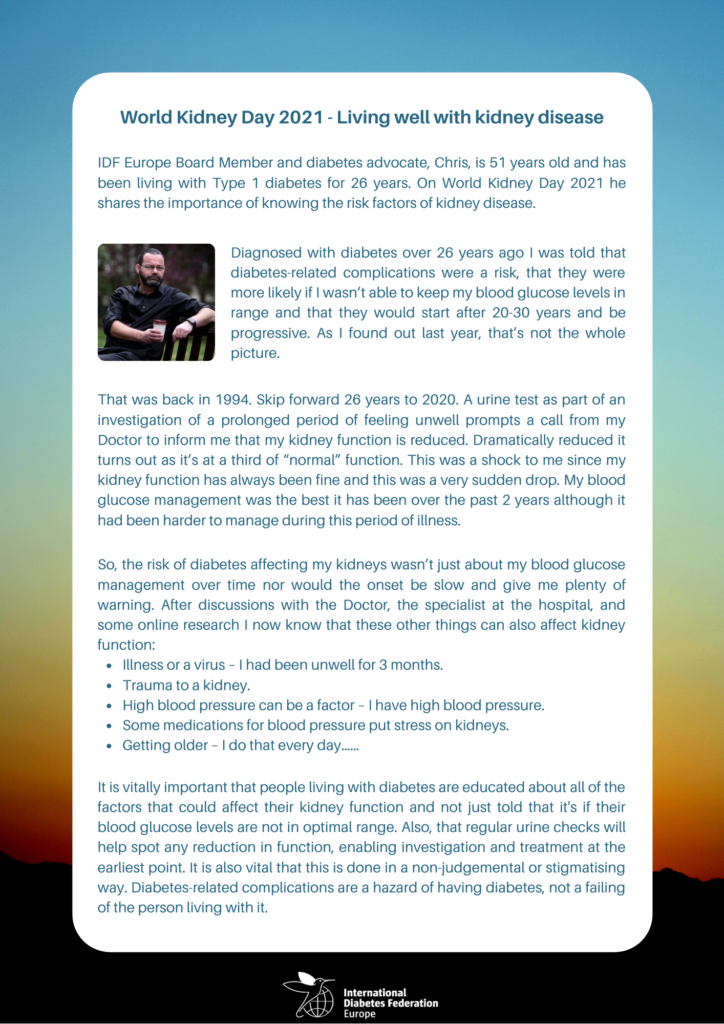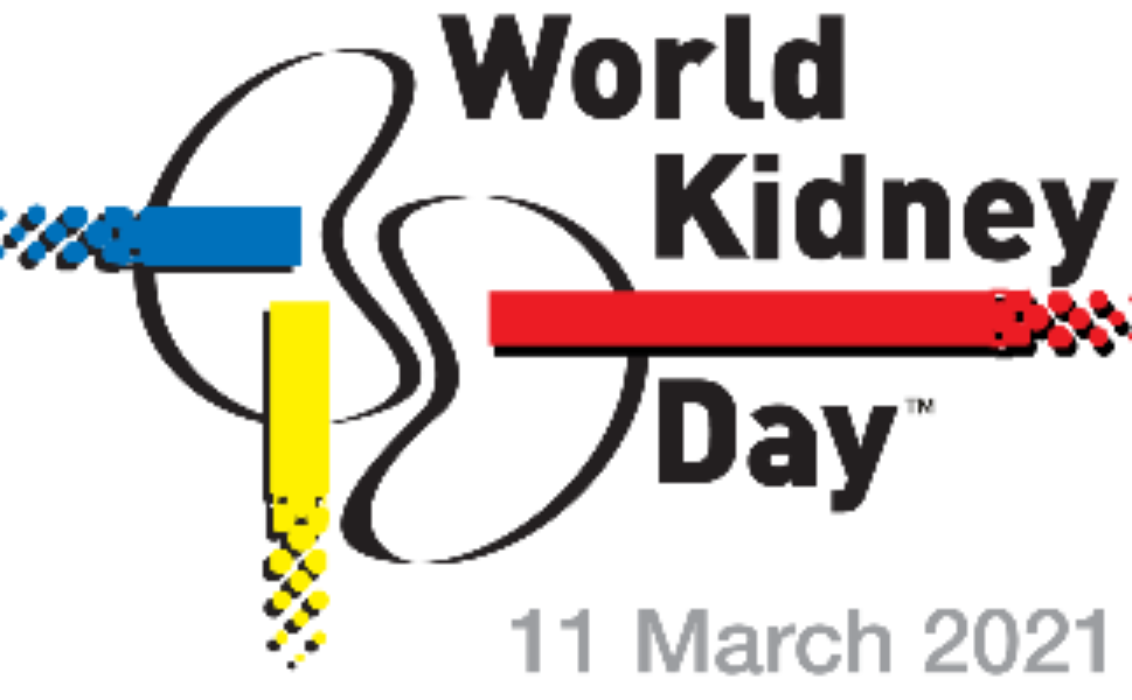World Kidney Day is an initiative organised annually by the International Society of Nephrology and the International Federation of Kidney Foundations, the aim of which is to raise awareness about the importance of our kidneys. This year’s theme is ‘Living well with kidney disease’.
Diabetes is one of the leading causes of chronic kidney disease, making it a common diabetes-related complication for people living with the condition. The International Diabetes Federation estimates that diabetes and hypertension together cause 80% of end-stage renal disease cases globally. This happens due to damage caused to small blood vessels in the kidneys over time, which leads to poorer kidney function. This results in around 40% of people living with diabetes developing kidney disease in their lifetime. As with many other diabetes-related complications, with the right care and medication, it is possible to live well with kidney disease. It is also possible to reduce the risk of kidney complications through frequent screening of people living with diabetes (every year after diagnosis for people living with Type 2 and the same after the first five years in people living with Type 1 diabetes). Read more about the link between diabetes and kidney disease here.
IDF Europe Board Member and diabetes advocate, Chris Aldred, spoke to us recently about the importance of people living with diabetes knowing the risk factors associated with kidney disease. Click the image below to download it.

Type 2 diabetes develops as a result of complex interactions between environmental, lifestyle, clinical and genetic factors. A lesser-known risk factor are kidney transplants. This is possibly due to the immunosuppressant medication that patients must take in order to prevent rejection of the transplanted organ. This medication may increase the risk of developing diabetes.
What this means for people undertaking a transplant is the need to better understand the modifiable and non-modifiable risk factors associated with diabetes and to be tested for the condition if they begin to display symptoms after the transplant. Early detection will help reduce the risk of complications further down the line. Read more here.



